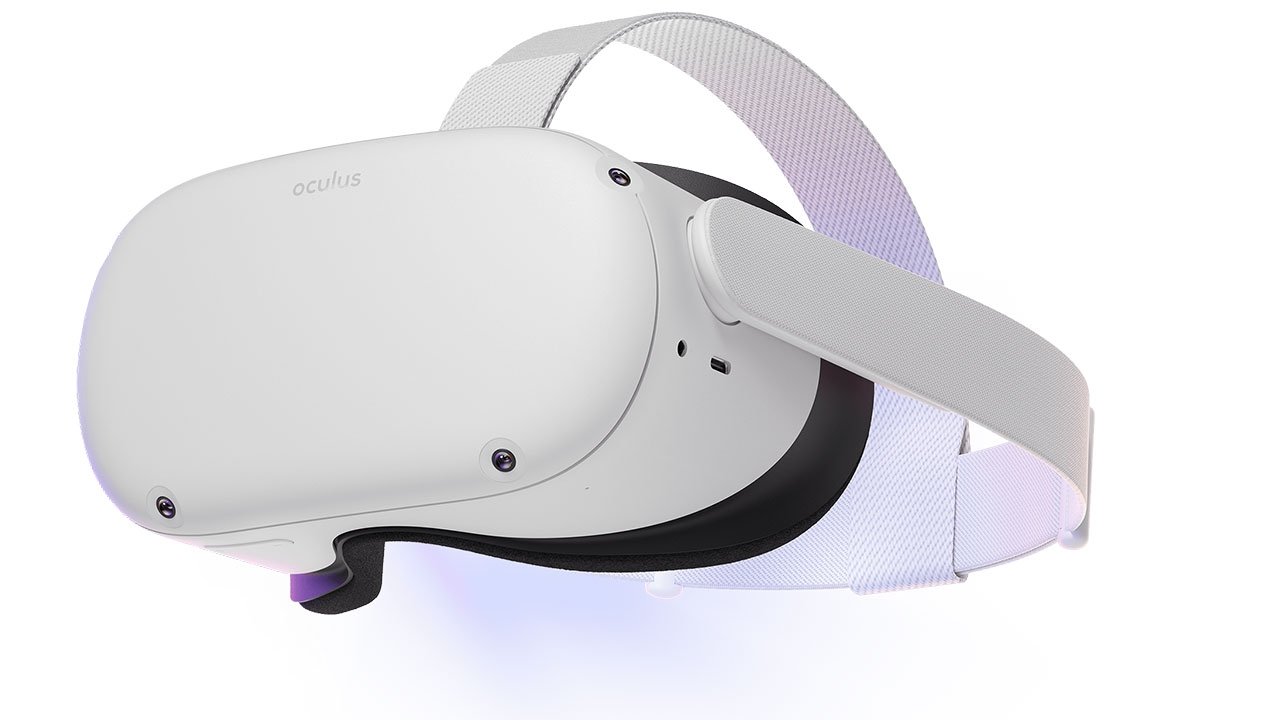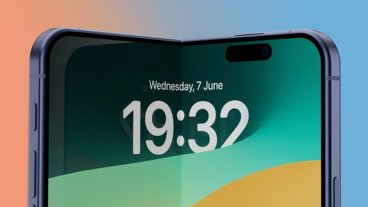Apple's hotly anticipated augmented reality headset will be bristling with cameras to enable a range of advanced AR experiences, biometrics and more, according to well-connected analyst Ming-Chi Kuo.
Kuo in a note to investors on Tuesday predicted Apple to integrate a total of 15 cameras in an AR/MR headset rumored to launch in 2022. By comparison, existing VR hardware typically integrates between two and five cameras for interacting with the surrounding environment and performing image pass-through operations.
Eight camera modules, supplied mainly by Largan, are expected to be placed around the wearable "helmet" to facilitate pass-through VR, a technology that allows users to "see through" the enclosed device by feeding exterior images onto interior screens. Apple's product is said to utilize high-resolution MicroOLED displays.
Along with the eight cameras dedicated to pass-through VR, six modules will feed "innovative biometrics," Kuo says. It is unclear if the analyst is referencing user security biometrics — like Face ID — or the ability to capture facial features and body movements of others nearby for inclusion in a simulated experience.
Finally, a single camera module will be installed for environmental detection purposes.
Kuo outlined Apple's rumored headset in a report on Sunday. A first iteration expected to land in 2022 will boast its own processor and onboard storage, meaning it can operate without a connected iPhone or Mac. Deemed a portable device, the first-generation headset device is unlikely to be marketed as a mobile product.
Thanks to high specification hardware like MicroOLED screens and the 15-camera array, Kuo says Apple's first AR/MR wearable will deliver an "immersive experience that is significantly better than existing VR products."
Previous reports pegged the AR headset at $3,000, though Kuo said Apple will likely set a price closer to $1,000 to cover its complex design and construction.
Apple is also rumored to release a pair of AR glasses that leverage optical waveguide tech to overlay computer generated graphics onto real scenery. Dubbed "Apple Glass," the mobile device could be sold alongside the AR/MR headset and is anticipated to launch in 2025. The tech giant is also said to be working on a similar system based on contact lenses that could see introduction after 2030.
Kuo in today's report reiterates previous predictions about optics set to debut in next-generation iPhone models. For 2021, Face ID on iPhone will transition from a glass cover to plastic, while the 2022 model will rely on a "unibody" lens design that integrates the lens stack and voice coil motor into a single, space-saving assembly. Next year will also see Apple upgrade the telephoto shooter on high-end iPhones from a 6P lens array to a 7P stack.
 Mikey Campbell
Mikey Campbell







-m.jpg)






 Marko Zivkovic
Marko Zivkovic
 Mike Wuerthele
Mike Wuerthele
 Christine McKee
Christine McKee
 Amber Neely
Amber Neely
 Sponsored Content
Sponsored Content
 Wesley Hilliard
Wesley Hilliard

 William Gallagher
William Gallagher








13 Comments
“15 cameras” should throw off the competition.
Kuo is literally throwing everything at a wall hoping something will stick. I admire his stupidity to predict the devices Apple will be launching in 2030. His reputation has dropped in my mind, but then he has been wrong before a few times but no one remembers that.
Ming Chi Kuo may have an OK track record on existing products, however his predictions for not yet existing products are often as good as the rest of the analysts out there. Here's a good link from this site on his past predictions.
Ming-Chi Kuo | Reports, Rumors, Accuracy, History (appleinsider.com)
Airtags were supposed to materialize in mid-2020. They haven't.
AirPods Max which he called "AirPods Studio" back in January 2020. They actually happened in December of 2020 but what's odd is that nothing was predicted in the few months preceding their release.
Apple Glass to launch in Q2 of 2020. Result: Nada!
August 2016: AMOLED iPad to launch in 2018. Again zero.
Does Ming-Chi Kuo have some sort of contractual requirement to regularly include various superlatives when citing him as a source? "...according to well-connected analyst Ming-Chi Kuo..." With annoying regularity, Kuo citations come along with complementary proclamations of his accuracy, prowess, or whatever, to the extent that it's pretty wierd. Browse through the linked Kuo-cited articles on this site, and you'll find many predictions that were accurate, a fair number that weren't, and quite a few that probably get counted as correct, even though they predicted a thing, but were way off in the timing or some other aspect. He's surely a useful source for a rumors site, but if he was really all that and a bag of chips, I'd already have Air Tags, an apple phone/watch charging pad, Apple AR glasses and some other pretty interesting stuff.
To be fair, it's not every time Kuo is cited, but sifting quickly through the last year or so of Kuo predictions on AI reveal these nuggets:
Also to be fair, it's not just AI that employs these Kuo descriptors. My point is that these frequent and friendly bumps likely have more effect on Kuo's reputation than his actual level of accuracy in predicting Apple things. Interestingly, snipping these out revealed not only the array of predictions described above, but also that these snippets were quite frequently proximate to Kuo statements effectively taking a mulligan by revising previous predictions.